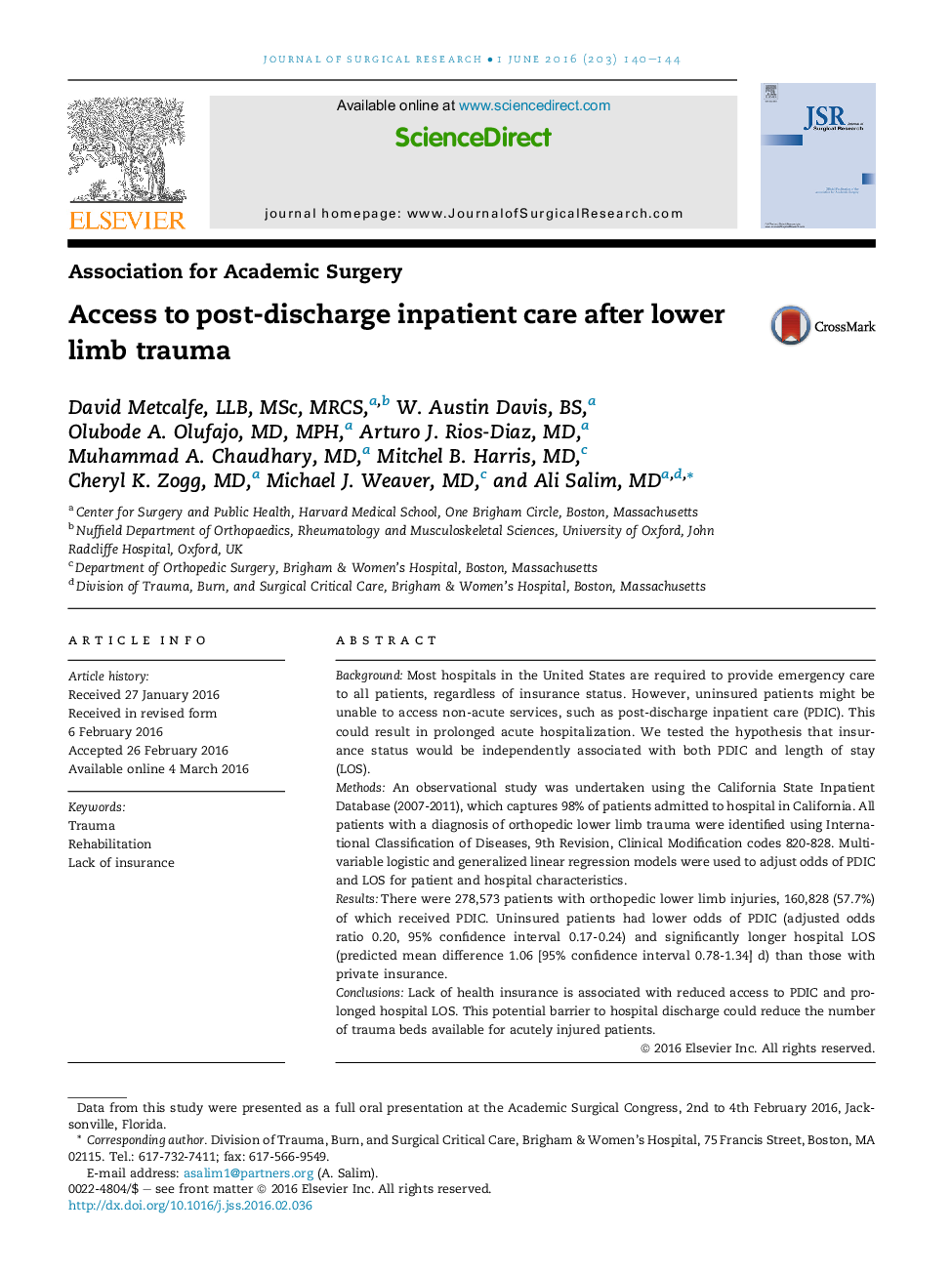| Article ID | Journal | Published Year | Pages | File Type |
|---|---|---|---|---|
| 4299208 | Journal of Surgical Research | 2016 | 5 Pages |
BackgroundMost hospitals in the United States are required to provide emergency care to all patients, regardless of insurance status. However, uninsured patients might be unable to access non-acute services, such as post-discharge inpatient care (PDIC). This could result in prolonged acute hospitalization. We tested the hypothesis that insurance status would be independently associated with both PDIC and length of stay (LOS).MethodsAn observational study was undertaken using the California State Inpatient Database (2007-2011), which captures 98% of patients admitted to hospital in California. All patients with a diagnosis of orthopedic lower limb trauma were identified using International Classification of Diseases, 9th Revision, Clinical Modification codes 820-828. Multivariable logistic and generalized linear regression models were used to adjust odds of PDIC and LOS for patient and hospital characteristics.ResultsThere were 278,573 patients with orthopedic lower limb injuries, 160,828 (57.7%) of which received PDIC. Uninsured patients had lower odds of PDIC (adjusted odds ratio 0.20, 95% confidence interval 0.17-0.24) and significantly longer hospital LOS (predicted mean difference 1.06 [95% confidence interval 0.78-1.34] d) than those with private insurance.ConclusionsLack of health insurance is associated with reduced access to PDIC and prolonged hospital LOS. This potential barrier to hospital discharge could reduce the number of trauma beds available for acutely injured patients.
